Imagine floating peacefully at sea, napping below deck in the bunk of your 54-foot fishing boat after a long long shift of hauling halibut gear, and suddenly you hear the ping…ping…ping… of an alarm near your head.
That’s what recently happened to one west coast mom who was commercial fishing in waters off B.C. this month.
“It was a weird little quiet alarm, and we don’t have anything like that on the boat,” recalled Esther Sample. She raced up the ladder of the Heather Rae, the fishing boat she and her fisherman husband Quincy Sample own, to investigate.
“We were absolutely surrounded by orcas. What I heard in my bunk was them talking, and their bubbles were coming up right beside the boat. It was a big active moment, then they were gone.”
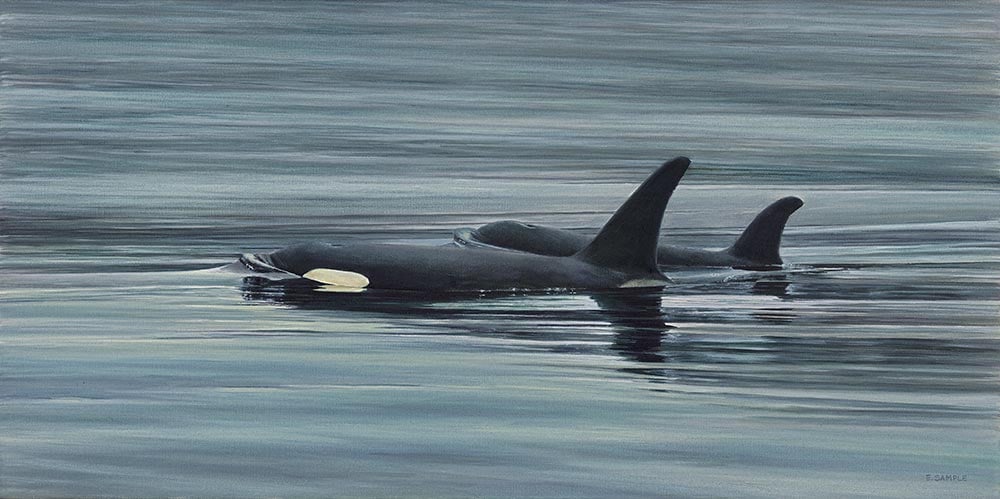
“It was the coolest thing” that Sample, a veteran fisherman and artist, says she’s ever experienced in her life on B.C.’s coast.
Sample is best known as a B.C. artist specializing in West Coast images. She has serious artist chops: she’s contributed to numerous books, had paintings shown through Artists for Conservation, and her painting Hunger Strikes was chosen as one of the annual Pacific Salmon Foundation’s salmon stamps.
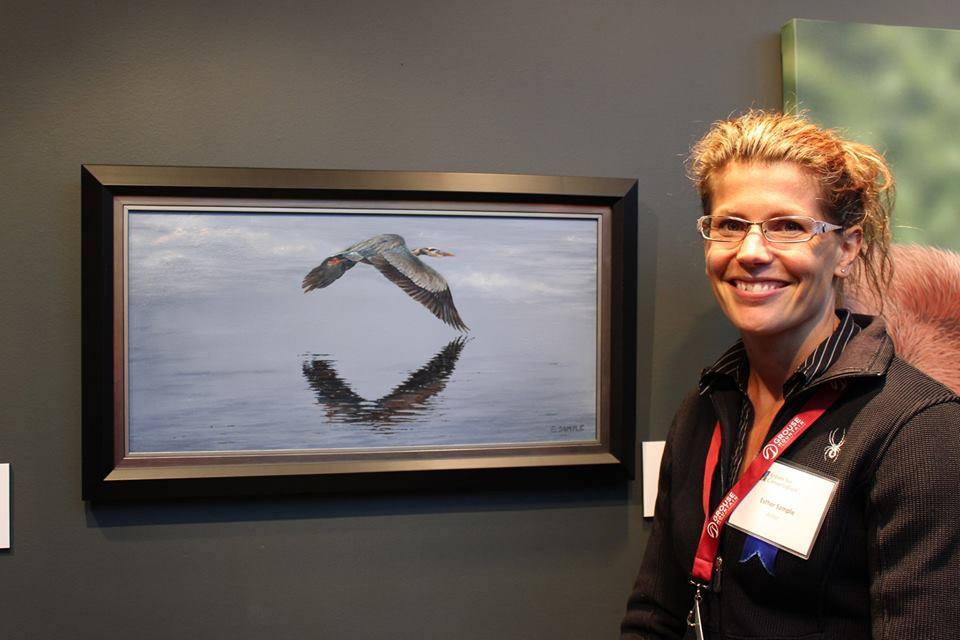
“I paint mainly in oils but also a little bit in acrylics. Basically I paint coastal scenes, a lot of waves, and working people on the sea,” she told West Coast Now. She’s a self-taught artist who sells her work through community events, her home studio and online.
“I’m excited to have an art career that is fairly profitable and that is not common,” she said, describing her business as “work that brings smiles to people.”
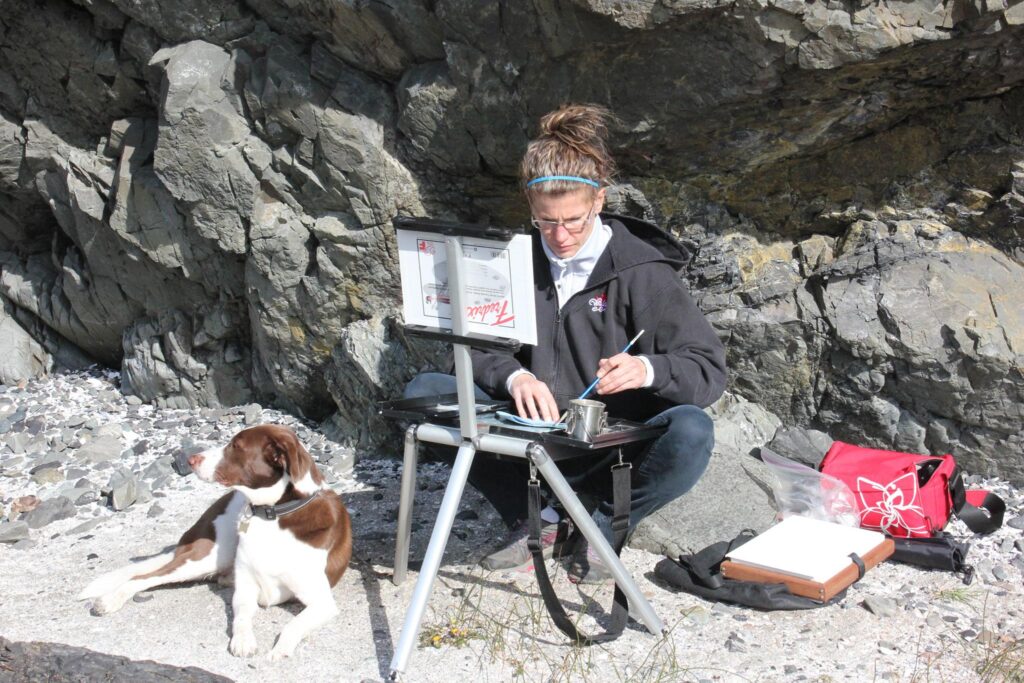
It was years of commercial fishing, in boats working from the Salish Sea to the B.C. border with Alaska, that inspired her.
“Fishing is something that’s in your bones, it’s not a job. Art’s the same … it’s something coming from inside of you. If you are working in direct relationship with the natural world, you have to listen, and respect where you are. Or you may not make it home. That changes how you live.”
– Esther Sample
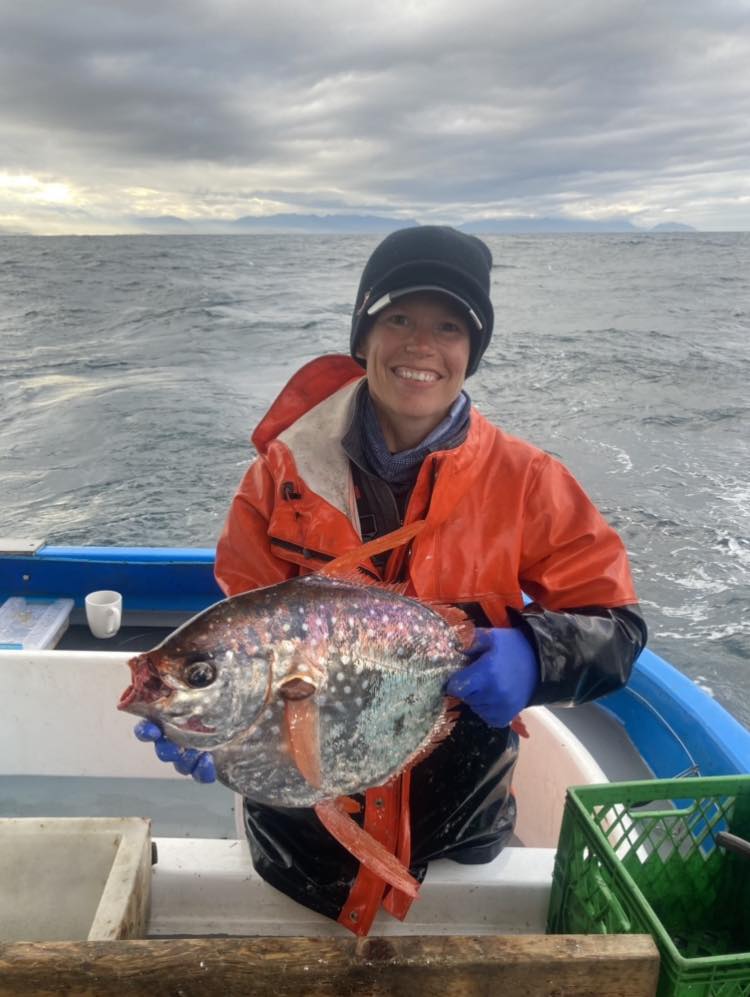
“Fishing is something that’s in your bones, it’s not a job. Art’s the same … it’s something coming from inside of you,” she said. “If you are working in direct relationship with the natural world, you have to listen, and respect where you are. Or you may not make it home. That changes how you live.”
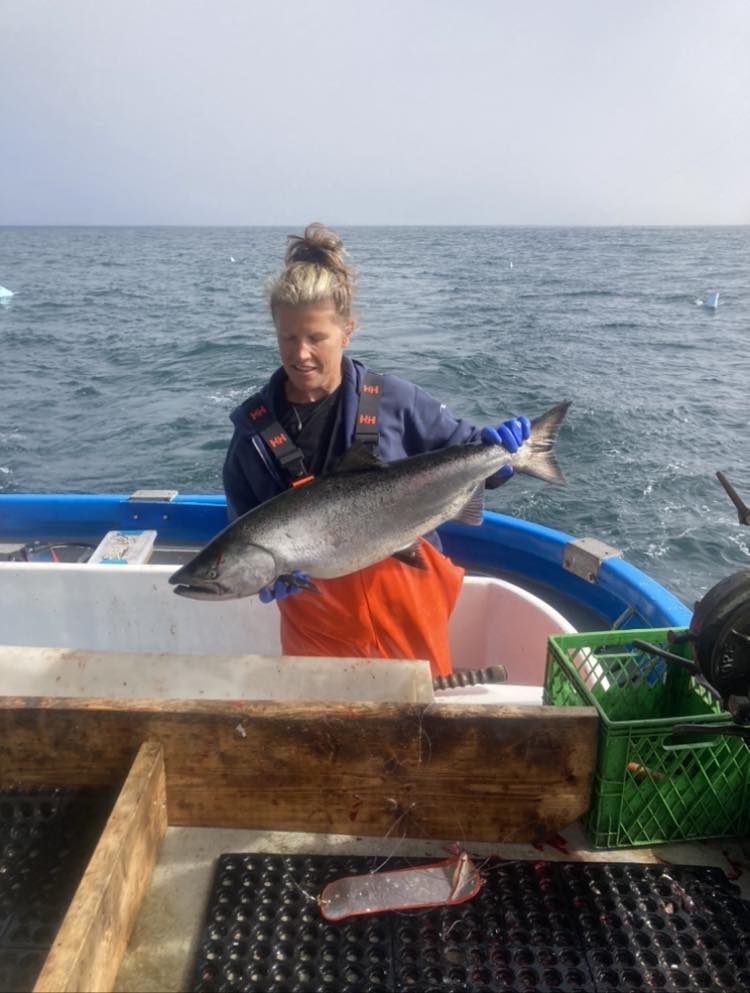
“When she and Quincy decided to have kids, she left the rough and tumble of the Pacific to become a mom, holding the fort in the family’s home in the Comox Valley while Quincy continued fishing. “That’s when painting became important,” she recalled. In 2010 she launched her art as a full-time business.”
But this summer, with all three of their children now teenagers, Esther decided to join Quincy for an extended season on the Heather Rae. Together they fished for salmon, lingcod and halibut off the North and Central coast, and explored beaches on their Zodiac.
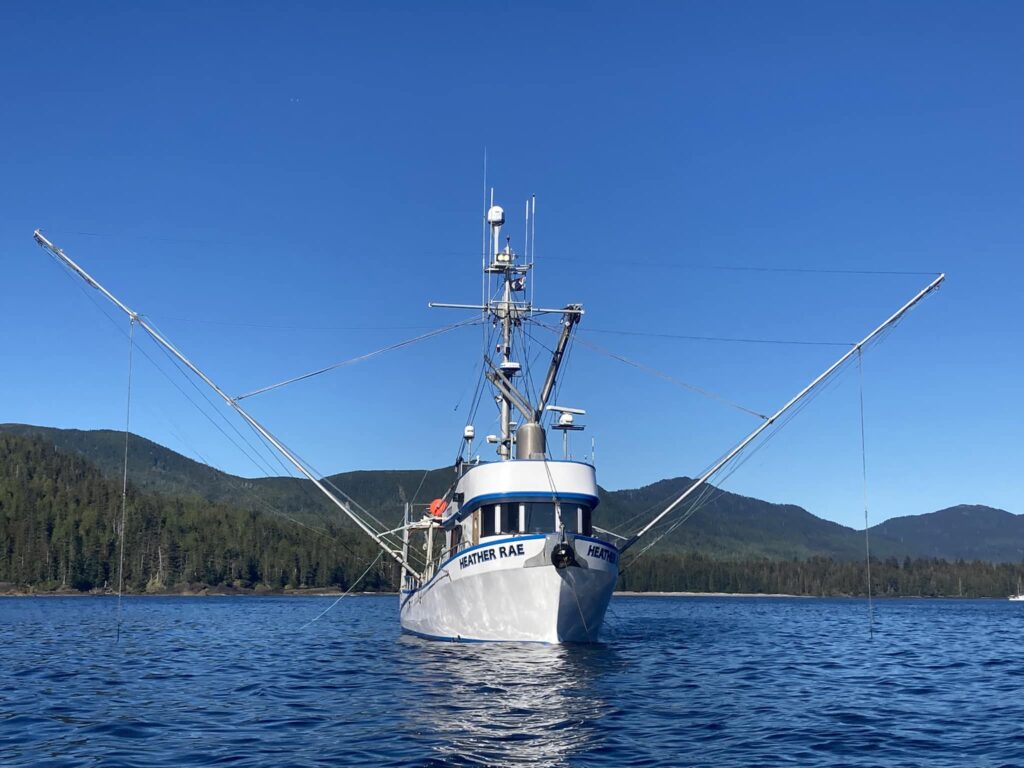
For husband Quincy Sample, it was one final fishing trip to cap a long career, and when they returned home to Comox in September, he officially announced his retirement and put the Heather Rae up for sale. “He’s really excited to not be under the same stresses and pressures he’s had for his whole life,” Esther said.
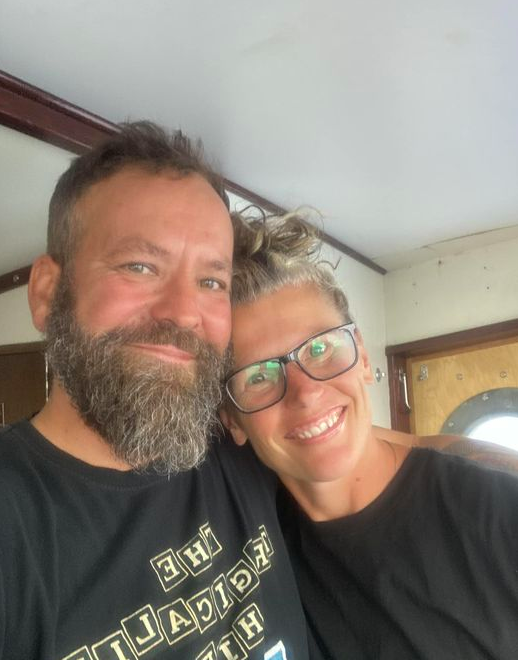
For Esther, the season was one last epic adventure as well. “Fishing this time around with Quincy has been such a throw back in time and an awesome way to close a chapter in life,” she posted on her Facebook page, which is replete with images of fishing and photographs of the coast.
Fans can expect future paintings to reflect her experiences this summer fishing for salmon, halibut, and ling cod, and being mesmerized by orcas, black bear, pine marten, porpoises, deer, a humpback whale next to their boat one dawn, and curious seals that followed her zodiac around.
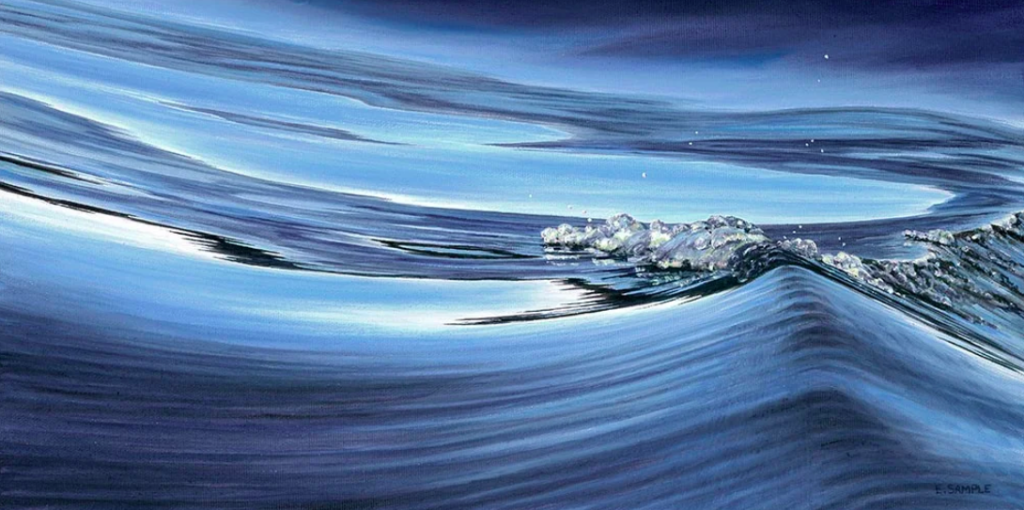
Sample says she creates her art to share that world with others.
In 2012 she was invited to join 49 other Canadian artists on the project Artists for an Oil Free Coast, a campaign by Raincoast Conservation Foundation against tankers off B.C., “to bring attention to the dramatic beauty and fragile diversity at risk if tankers are permitted to ship tar sands oil through the coast’s narrow and rocky channels.”
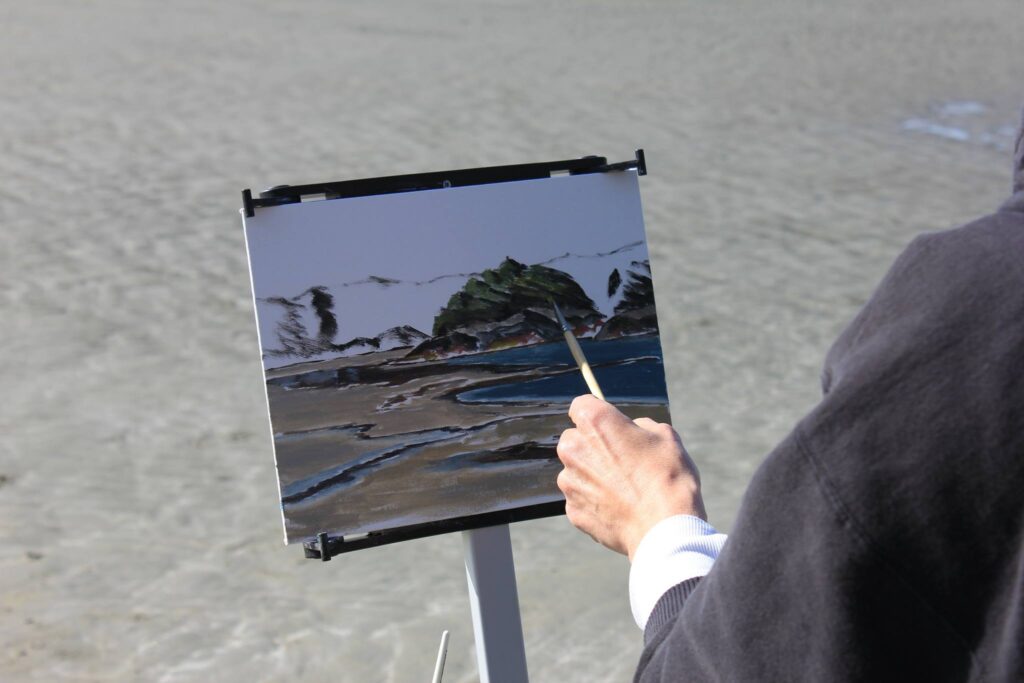
Sample said she joined to show “what an amazing place that we have, taking it as a positive look, and educating people on the beauty, ruggedness, and remoteness of the coast.”
“We have one of the most treacherous coasts in the world and throwing big tankers of bitumen in there is extremely dangerous,” said Sample. She saw creating art as a positive effort, “versus the negative stance of protests.”
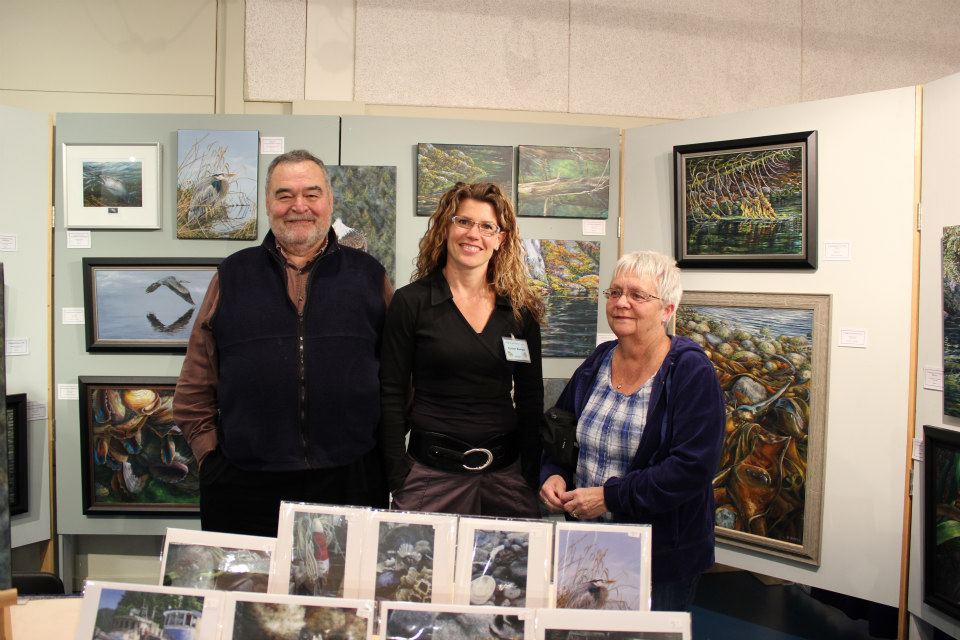
When the Heather Rae sailed off Haida Gwaii this summer, and she and Quincy explored remote beaches, she realized the coast is also at risk from plastic pollution. “The amount of garbage on the beaches blew my mind away,” she said. “I was so disappointed at the amount of plastic on these remote beaches.”
“I used to think all those conversations about the great garbage patch were bullshit. Where we live (on Vancouver Island) generally locals clean as they go. When you go somewhere where nobody is cleaning, it piles up,” she said.
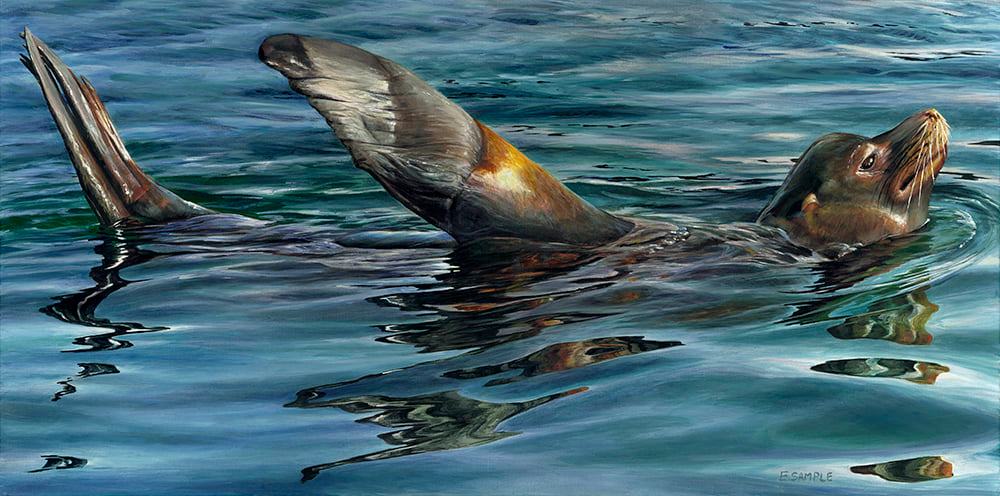
But Sample stresses that her approach to issues is positive, and she avoids partisan politics, saying, “I’m not about that.” She said she cares deeply about the coast – and her way of acting on that is to celebrate it through her art.
“There’s been so much uncertainty in the last couple years on our whole entire planet. People have felt so unstable, and suddenly I found that my art became a real anchor for people,” she said.


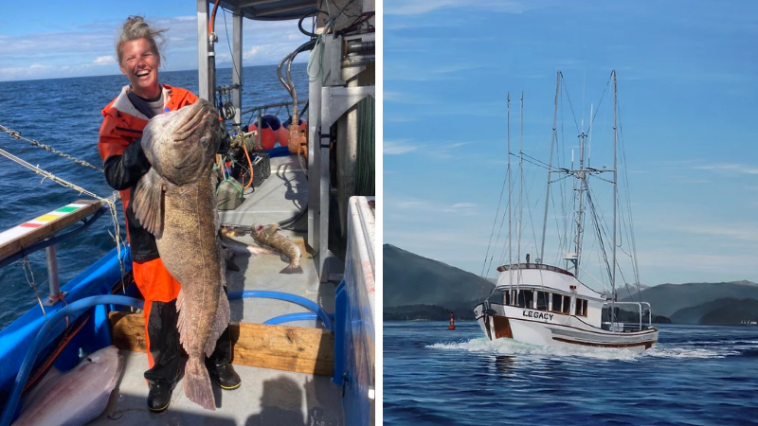
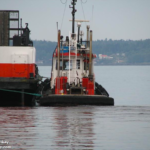
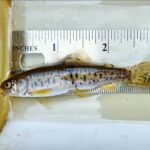
https://giphy.com/embed/uVZLp5UIEHTck